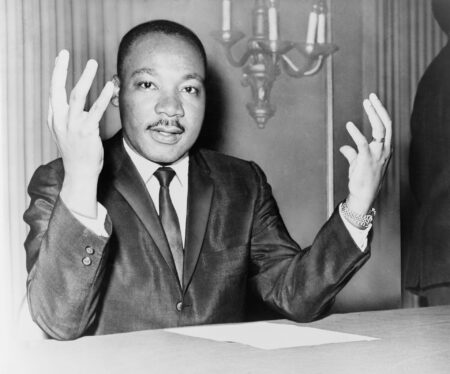California Congressman Ro Khanna recently announced a new partnership with HBCU Jackson State University to get students high-paying jobs in the tech field following graduation.
Announced during a trip to Jackson, Mississippi, Rep. Khanna, whose jurisdiction includes Silicon Valley, highlighted the need for ensuring that HBCU students are well represented in the tech field, particularly in sectors such as artificial intelligence and other advanced fields.
Speaking at the Smith Robertson Museum, he emphasized his work alongside tech company TalentSprint to lead the workforce program, TechWise, as a potential solution to diversify the tech world. The free program connects students with experts in the field and has them take part in tech development projects for which they’re given stipends. Following the course, the students are able to secure a salary of $65,000 to $85,000.
We need to create opportunities for all Americans to have good jobs in the AI and digital revolution. Many Jackson State students are participating and getting tech jobs. I’m proud to be leading this effort with the TechWise program across our nation.https://t.co/cATR0jpyIa
— Ro Khanna (@RoKhanna) August 8, 2025
Approximately 15 HBCUs have taken part in the program. Since they joined, Jackson State University has had 35 students graduate from Tech Wise. Another 12 are currently enrolled in the program.
During his visit, Khanna also emphasized the need for AI literacy courses across the U.S.
“Every person needs an AI education in this country like we teach reading and how we teach math. They need to understand how to use the technology. The good news is it doesn’t even require much math,” said Khanna per local news outlet WJTV. “AI does it for you, but they need to understand what a prompt is, how to prompt AI, how to use AI.”
Previous research has shown that, although Black students display an aptitude for tech jobs, they aren’t often exposed to the resources needed to pursue STEM careers.
According to a 2024 Black Students and STEM report, there was a reported 51% exposure gap in computers & technology amongst Black students. Conducted by YouScience and Black Girls Do Stem, the study determined the exposure gap by measuring the difference in students’ aptitudes and careers they haven’t been exposed to, as well as which ones are the best fit for them.
Overall, only 75% of Black students go to schools that offer computer science courses to their students, with only 6% of all advanced placement computer science courses being made up of Black students.
At higher education institutions where Black students can receive an education for tech careers, these colleges and universities are often underfunded, receiving only one percent of all endowment funds, according to the Kapor Center.
As a result, only 7% of Black tech workers make up the tech field, despite making up 13% of the overall population.
“We excluded the Black community from the agricultural revolution, we excluded the Black community from a lot of the industrial revolution,” said Khanna per the Clarion Ledger. “Shame on us if the Black community is excluded from the digital revolution.”











